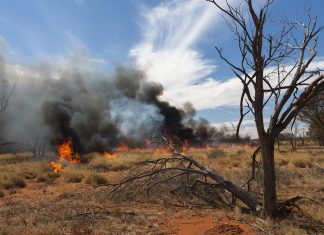The desperate family of a Pakistani refugee who died at Latrobe Regional Hospital in April is on a frantic search for a migration lawyer after the Federal Government refused his wife a visa to collect his body and bury him.
Hazara Shamama Association, a Melbourne-based organisation that assists refugees coming from Pakistan and Afghanistan, is helping Asghar Ali’s family collect his body after he died at the hospital on 16 April.
Association secretary Khan Salehi said the organisation was looking for a lawyer to assist Mr Ali’s wife lodge another visa application after the immigration department denied her entry to Australia on 30 May.
“We’re trying to find a lawyer to try again,” Mr Salehi told The Express.
Mr Salehi said it was very “unfortunate” the government denied Masooma, Mr Ali’s wife, a visa even if the organisation assured the department it would shoulder his family’s expenses while in Australia.
Mr Ali sought asylum in Australia after arriving by boat in 2011.
He left his wife and three children in Pakistan and was on protection visa at the time of his death.
He worked as a chef at a Moe restaurant and was rushed to LRH on the day he died.
Mr Salehi said Masooma and her eight year-old child initially lodged visitor visas through a migration agent that the Hazara Shamama Association provided.
The application included a support letter from the association saying it would take responsibility for the family’s expenses while in Australia, including a burial place for Mr Ali.
The Department of Immigration and Border Protection denied their applications on the basis that Masooma had failed to prove that she planned to return to Pakistan after burying her husband.
“The immigration department did not even consider that she’s leaving her two other kids in Pakistan,” Mr Salehi said.
He said the government’s refusal to deny Masooma a visa was “not a good thing” as Mr Ali’s body should have been buried immediately in keeping with Islamic burial practices and not kept for months at the LRH morgue.
“They’re going through a tough time, they’ve not seen him the last seven years they want to do a funeral service that he deserves,” he said.
Mr Salehi said Mr Ali could not be buried in Pakistan due to his persecution there and bringing his remains home might put his family in danger.
A Department of Immigration and Border Protection spokesperson said an applicant’s links to their home country was not a sufficient ground to prove that an applicant intended to stay temporarily in Australia.
“While an applicant’s family links to their home country are taken into consideration, they alone are not sufficient evidence that an applicant intends a genuine temporary stay,” the spokesperson said in a statement.
The department said additional information should be provided to prove the applicant intended to stay in Australia temporarily and “in compassionate circumstances, processing can be expedited within the bounds of the legislation”.
In a separate statement, the hospital said hoped “the issues surrounding Mr Ali’s collection and burial will be resolved for the sake of his family”.











